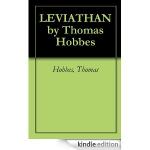
|
| Name: _________________________ | Period: ___________________ |
This test consists of 15 multiple choice questions and 5 short answer questions.
Multiple Choice Questions
1. Why can passion for power be dangerous?
(a) People can use evil means to get power.
(b) People can be deceived.
(c) People cannot achieve it.
(d) People can be electrocuted.
2. What does Hobbes say about controlling thoughts?
(a) The commonwealth controls thoughts.
(b) People cannot always do it.
(c) People learn to do it at an early age.
(d) Thought should not be controlled.
3. What two systems does Hobbes define within a commonwealth?
(a) open and closed
(b) private and political
(c) democrat and republican
(d) tyranny and ordinary
4. When is there nothing illegal or unjust in any action done by anyone?
(a) when there are guidelines
(b) when no one is looking
(c) when there is no commonwealth
(d) when the commonwealth is too spread out
5. Why does Hobbes say that people are always seeking more power, wealth, or popularity?
(a) People are restless.
(b) People believe in the supernatural.
(c) People are like animals.
(d) People can think.
6. What does Hobbes call reasoning with oneself?
(a) Impossible
(b) Insanity
(c) Marking
(d) Foolish
7. Why does Hobbes say it is natural for the mother to have dominion over children?
(a) They are naturals at discipline.
(b) They need children in case the husband dies.
(c) It is not always known who the father is.
(d) They have dominion over nothing else.
8. What does Hobbes call the intention to do wrong or harm another?
(a) absence of forethought
(b) injustice before the action is carried out
(c) nothing illegal
(d) a bad idea
9. What is Hobbes' position on mothers and their children?
(a) Mothers have no rights to children.
(b) The state owns all children.
(c) Mothers will abandon their children.
(d) The mother is the natural owner of the children.
10. What is the term he uses for reasoning with another person?
(a) Signifying
(b) Stygmatizing
(c) Arguing
(d) disconcerting
11. When many people first get together, what are they called?
(a) A gaggle
(b) A mob
(c) A multitude
(d) A hodge podge
12. How does Hobbes classify the person or group of people who have someone speak for them?
(a) As dummies
(b) As actors
(c) As helpless
(d) As uneducated
13. In his comparison of the commonwealth to the body, what does Hobbes identify as the role of the sovereign?
(a) the head of the commonwealth, which is the mind
(b) the father of the commonwealth, which is his responsibility
(c) the spine of the commonwealth, which keeps it erect
(d) the soul of the commonwealth, which is the body
14. Why does law need interpretation?
(a) in order to apply it to distinct situations
(b) in order to confuse the public
(c) in order to change its meanings
(d) in order to make sure it is not understood
15. Why does Hobbes say men will give up some of their freedoms?
(a) when it does not cost them anything
(b) to seek protection for their lives and those of their family
(c) when they are given other freedoms in return
(d) when they go to prison
Short Answer Questions
1. What are examples of Hobbes' involuntary motions?
2. What does Hobbes say are the three types of commonwealth?
3. Why does Hobbes say that having friends, followers, and servants is the greatest power?
4. What does Hobbes think of using metaphors?
5. What results are there when an actor makes a contract?
|
This section contains 603 words (approx. 3 pages at 300 words per page) |

|




